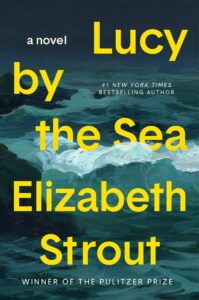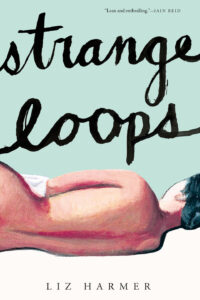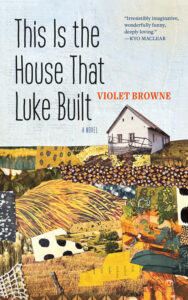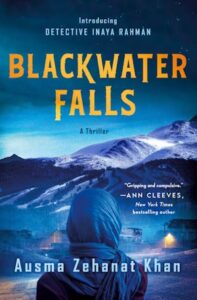March 7, 2023
Gleanings
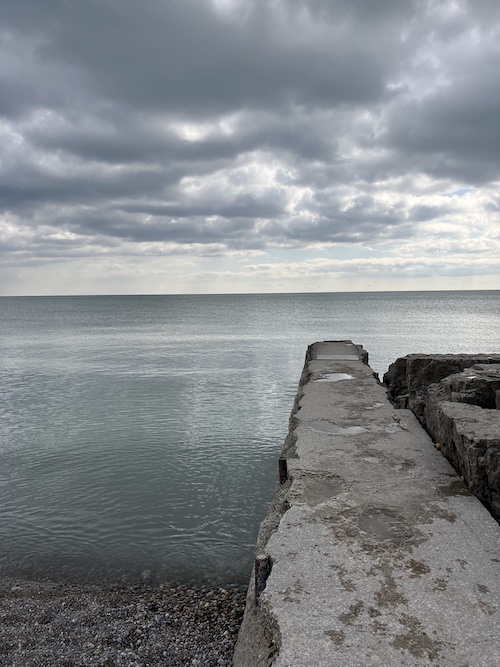
- high need for closure.
- What’s courageous about the timeless combination of broccoli and pasta, Deb? It’s the cooking time. This broccoli is not al dente. It does not “retain a crunch,” “still have some bite to it,” or keep any of the verdant green hue it entered the pan with. And, even more audacious, it doesn’t wish to.
- May we follow his example and make our dreams come to fruition. So,we may not be tempted in the least to ride a bicycle and camp across the United States, but I bet there’s something for each of us. What’s calling you?
- Mark was very startled by the phrase “that’s a good-looking dog” when I first pointed one out on the sidewalk, but now he uses it too–it originated with my father.
- Like I said, I wasn’t asking for its input. I don’t need my phone to tell me how much I’ve walked or haven’t walked. Does my phone know that the sidewalks have been icy, the winds bitter and blustery? It should! It seems to know everything else.
- It’s more important to make good art than to garner a lot of attention on social media.
- simply because I want to cherish the sweetness (and ache) of this very fleeting now in which we travel with stuffed bunnies.
- We don’t know at the time that these ordinary moments will one day resonate in the way that they do. And that, in part, is what makes them so extraordinary.
- Just in general, it’s been valuable to challenge my preconceived ideas about the environment in which I work. It’s probably premature to use the term “post-pandemic,” but as spring 2023 approaches, I have a sense that many of us–individually and in groups–are looking around and within to see how our work in the world has changed in the past three years and what the future could hold.
March 6, 2023
Rereading Lucy Barton
This is a post about a lot of things. It’s about being wrong, and dismissing certain ideas and ways of being, and the question of how one knows what’s good, all of which are actually themes of Elizabeth Strout’s Lucy Barton books, which begins with My Name is Lucy Barton, and continues with the story collection Anything is Possible, Oh, William, and, finally, Lucy By the Sea.
I first read My Name is Lucy Barton in 2016 and, if you’ll recall, I did not like it. I wrote, “I bought the book in hardback, paid $30+ for it and felt I’d paid a lot of money for something slight and unfinished. Which was inherent to the project, I supposed, but I was never able to quite figure out how, or what the point was, or why this wasn’t a novel proper.” At the time, I’d also noted that the book was short enough, however, that maybe I’d go back and read it again…but I didn’t. Even with the subsequent books, I was willing to let Lucy Barton go. But then the books started to be awfully celebrated, appearing on book lists, readers I admire a great deal declaring their love for them, and so this winter I decided to try them again. (No big chore either, they’re all very short!)
And I’ve got to tell you that everything I thought was weird and slight about the Lucy Barton novels is still right there. The downright unfashionableness of the project too, the quiet, the earnestnes, so many exclamation marks!! (!!). Telling, not showing. She’s breaking all the rules I know of how to write a novel well, and it’s my immediate instinct to dismiss these books again. I’m only considering them again because other people are telling me that they’re good, instead of me knowing that in my bones. And isn’t that everything we’re advised against as readers, as critics, as humans? Of following the crowd, reading like sheep?
I fervently believe that so much of what we regard as literary criticism is actually a matter of taste, and I also know that it takes all sorts, and books would be very boring if there were only one kind of book. Other people love books I loathe, and vice versa, and that’s precisely what gives books, and life, and the world, its flavour.
But still, to remain open. This is the object, I think. To stay curious. To look backwards and wonder if there is something you might have missed, some part of the puzzle you might have failed to understand.
What I missed about the Lucy Barton books in the first place is that I don’t think Strout was trying to write the novel as I know it anyway. (Similarly in her celebrated Olive Kitteridge, which was less a collection of linked stories [though it was also that] than an attempt to show the multitudinous of humanity and the universe, and the fundamental unknowability of another human being.) Strout’s books are less an exercise in narrative than one of character, and its variable layers, and the connections between them, and between places, ideas, and things,
Such as that Bob Burgess, who Lucy Barton meets Lucy By the Sea, has his own book, Strout’s 2013 novel The Burgess Boys, which I’ve just put on hold at the library. Or that Olive Kitteridge herself shows up, secondhand, in Lucy By the Sea, in conversations Lucy has with the cleaner from Olive’s apartment building. Or even just the way that one paragraph leads to another, leaping back and forth across time, between focusses and ideas, almost a randomness to their pattern—which had been my impression when I first read My Name is… back in 2016. When I hadn’t known enough to trust that I was in the literary hands of somebody I could trust.
“One of the reasons I believe this memory to be true is, first of all, it was so strange.” —Lucy by the Sea
It is the strangeness, and seeming randomness, of the Lucy Barton books that has me having real difficulty understanding it as fiction, has me struggling to believe that it is not true. Because the strangeness is so lifelike, as opposed to the constructedness of a literary narrative, the sense that a fictional world has to make, or so I assume—and Elizabeth Strout does no such thing.
I had a hard time with with Lucy by the Sea, a novel beginning in March 2020 and set against the unfolding pandemic, which is to say that it got into my head and tapped into my own pandemic (small t) trauma in such a visceral way. I also loved it and found it riveting, because any work of art that can so effectively tap into one’s nervous system is a wondrous thing, but it was upsetting to live that story again, to recall the fear and uncertainty, how dire things were, which is easy to forget now that we’re so much farther down the road.
It’s a novel (like all the others, and Olive too) about relatability, about what happens when we think we know when we don’t, about the limits (maybe?) of understanding people whose life experiences have been different from our own. Or about the ways that knowing and being known can be a burden—Lucy’s relationship to her sister, or even her own daughters, who—she realizes—remain at a remove from her because their own sadness affects her too much.
Books like the Lucy Barton books are never finished, there is no THE END. As Lauren Leblanc writes, “Like in any relationship, there are times in reading these books when certain stories demand attention, and there are times when personal moments are concealed or suppressed. There is inherent pleasure in that mystery. Her books read like familiar friends: complicated, timeless, achingly human, and compassionate.”
Elizabeth Strout doesn’t write novels so much as chart constellations, connecting points of light, moments of grace.
February 28, 2023
Strange Loops, by Liz Harmer
Exquisite and propulsive are the first two words that spring to mind when I think about Liz Harmer’s latest novel, Strange Loops, which I read this weekend and found virtually unputdownable. It’s the story of Francine, a high school teacher involved in an inappropriate relationship with a former student, who is now 18, the power dynamics at play inversely reminiscent of a relationship Francine had during her own teen years with a charismatic pastor at the church Francine’s twin brother Philip had started attending, a church that Francine had followed him to, though she was never the believer that he was, perhaps the reason he’s been angry at her for decades.
The novel moves between three timelines with Philip and Francine’s respective points of view: high school era, present day when both are married with children in their thirties, and a cataclysmic family vacation five years before that during which a storm blew in and everything the twins had been repressing for decades finally exploded to the surface. Are the “strange loops” the two are caught in destined to repeat forever? Does Philip know about Francine’s relationship with her former student? Will he tell her husband? And how does their mother’s own history factor into all this, a small but essential question whose answer is vital to this novel’s tremendous power?
Last summer a Canadian journalist published a misguided memoir that became more than a bit notorious after the fact, a strange and unthoughtful work of revenge, the kind of memoir one might more often encounter in torrid fiction than real life, a book that was mostly remarkable for the questions it posed instead of any of the conclusions it came to. And if that strange memoir had been an excellent novel, it could have been this one, an unsettling story of doubleness, the messiness and irresolvability of power dynamics, and what it means to be a woman who wants, who desires.
February 27, 2023
On Conflict

Unless you’re someone who spends a lot of time on Twitter (and I’m sorry if this is indeed the case), Pamela Paul’s recent New York Times op-ed “In Defence of JK Rowling” might at first glance appear innocuous, even obvious. And because I’m now (blessedly) someone who doesn’t spend a lot of time on Twitter either, I don’t even find the op-ed remarkable. Nothing to see here, move along, which was what I was in the midst of doing when I listened to Amanda Ripley on the On Being podcast, which I found so deeply clarifying.
Now I’ve got to tell you that Pamela Paul has disappointed me. Former New York Times Book Review editor, and author of the bookish memoir My Life With Bob, which I loved and which actually changed my life, I’d sort of assumed that anybody so connected with books and reading would be far more interested and curious about the world in her columns than the Paul has proven herself to be, with hot takes such as, “Why Don’t Diversity Champions Champion Prime Minister Liz Truss’s Diverse Cabinet?”
Yawn.
(This may be the closest I’ve ever come to being one of those women who furiously post UNFOLLOWING when, say, for example, Reese Witherspoon posts a flattering profile of Michelle Obama.)
Paul’s schtick mainly seems to be appearing very reasonable while highlighting everything that’s silly/annoying/nonsensical/frustrating about identity politics, and while there’s a whole lot of material there to work with there, for sure, I’m bothered by the way that doing so plays right into the hands of right wing trolls, and is categorically programmed to generate outrage, to be click-bait. And I’m sure it’s not merely happenstance that the entire occasion for Paul’s JK Rowling piece is a podcast produced by the media company founded by one Bari Weiss, the OG schickster, who has made highlighting everything that’s silly/annoying/nonsensical/frustrating about identity politics into a lucrative career, playing the victim while railing against others who are supposedly doing the very same.
What I loved about Amanda Ripley’s conversation with Krista Tippett on On Being was how it helped me understand what exactly it is about the Weiss’s and Pauls of our mediasphere that bothers me so much, why I find their posture of reasonableness so disingenuous and counterproductive.
There is no growth, no movement, no curiosity, no desire for understanding. Instead the same old arguments, treads digging deeper, over and over, and over and over, and even worse—it’s monetized, and stoking people’s fears and contempt for their neighbours. I don’t care where you lie on the political spectrum, or how reasonable you purport to be—that’s dangerous, and I hate that, and it’s also just profoundly uninteresting.
February 23, 2023
This is the House That Luke Built, by Violet Browne
I don’t really know where to start with this book, this brutal, gorgeous, funny, strange and loving story of loss and living, though there is an obvious comparison in terms with subject matter with Lisa Moore’s February, but Violet Browne’s This is the House That Luke Built—fiction born of the author’s own experience—is something altogether its own. Something that, I must confess, I don’t *get* in its entirety, but I’m going to speculate that this is the point, that there are element of Rose’s experience of loss and widowhood that are unfathomable to me, the same way that, I suppose, I once read Rachel Cusk’s A Life’s Work before I’d had children and missed the point altogether.
The novel is told in a series of vignettes moving back and forth through time, showing Rose early in her relationship with Luke as, with her two children and his son, they come together and make a family, baby Emily arriving not long after. We see Emily in 2013: “Every since her father vanished when she was fifty-three days old, Emily’s body has been gripped by a vibration at the molecular level,” an urgency she tries to satiate with tattoos, piercings, as she tries to settle with what was lost to her. 1994, as Luke’s boat goes down in a storm. 1980 with Rose in her father’s boat as a child, in Plancentia, NL.
Mostly though, these vignettes tell the story of Rose trying (and often failing) to pick up the pieces of her family life after Luke’s death, how time marches on, how her parents and her sister keep her going, as do her children, with their own needs and particular wounds that become clearer over time. But she ends up eking out some kind of a deal with the fates, that every year on the anniversary of Luke’s death, Rose gets to walk through the wall of the house he’d built for their family and find him waiting there for her, though it’s a deal she must pay dearly for—in exchange, she’s aging faster, losing years of her life, her teeth decaying, her skin losing its definition. Until eventually she’s asked for too much…
I love this book, just as heartbreaking as it is hilarious, full of gorgeous prose, and gutsy women, and so much love, even in the face of so much loss, maybe especially. Rose’s struggles to raise her kids and make a better life for herself are harrowing and awesome, and the flame that continues to burn for the husband she lost is sustaining, transformative, unforgettable.
February 22, 2023
Gleanings

- I loved this book because it acknowledges the unfairness of the world and the privilege of those who fall back on a shallow understanding of faith. But where I can get mired in despair over these truths, Vanessa is out there beating a path through these weeds for all of us.
- The story was titled Wankus Interruptus, and when I first read those words, centred at the top of the page, I paused. (Do you know this feeling? A fleeting fuzz of nostalgia. A whiff of emotion. In this case, the top note was humour.) The phrase was familiar. Why? And in the next second I recalled.
- If you pay attention to the world, you will love it more than you realized was possible. This love will break you down and build you up.
- When we walked the route to church or our cousins’ house, we passed by the slum where our ayah lived. There was a big gate that separated the area where the servants lived in cramped poverty. Sometimes the gate was open and I would glance in as we walked by, curious about the squalor that lay beyond, where there were children like me but not like me. We were worlds apart.
- Like maybe, even if we aren’t friends (yet!), we are neighbours in a spiritual suburb full of women trying to parent and work and be full human beings and sleep through the night. It’s not a bad place to live.
- That there’s still a piece of me (oh how it works so hard to keep me safe) … that thinks that there is a right and wrong way to get to that place, that there’s a right and wrong way for me to be, to feel, to act, to travel, look, to parent, to human, to live.
- And by the time I’ve done all these things to my outer self, my inner being is nodding and rolling their eyes and going: Yeah, yeah, ok. We’re not such a dirt grub. We clean up nicely, we make cool things, we’re strong, we really do like ourselves and others. Sure. Whatever. Let’s do this.
- I sewed and John healed and then I wrote about how the two processes were intimately connected, the threads overlapping and entwined. (In an older time, his incisions would have been sewn up after the surgery but now most surgeons use staples!)
- You’d think a cylinder would be easy but it’s often the simplest forms that are most unforgiving. As I am not a thrower, I know that my forms will never be as tight as they would be on a wheel, and nor do I want them to be. But cracks won’t do. ‘Practice makes good,’ is my new motto.
February 21, 2023
Blackwater Falls, by Ausma Zehanat Khan
Blackwater Falls launches a new mystery series by Ausma Zehanat Khan, whose Esa Khattak/Rachel Getty books I enjoyed very much, this new series set in Colorado, where British-born Canadian Khan now makes her home, and with Detective Inaya Rahman at the helm. This is a novel very aware of itself as a police procedural post-2020, just as Rahman herself is aware of her complicity as part of a system that neither serves nor protects people of colour.
And it’s not just (B)lack and white, literally, or otherwise. Detective Rahman, a member of the police’s Community Response Team, is brought in after the body of a teenage girl, Razan, a Syrian refugee, is found murdered and bizarrely displayed at the entrance to her mosque in the rural town of Blackwater Falls, CO. A gang of menacing bikers linked to the local Evangelical church lend an aura of menace to the case, plus a local Black activist is furious that this one murdered teen is garnering so much attention, while two other cases of Muslim teens missing from the local Somali community have not even warranted an investigation, have been shrugged off as merely runaways.
Detective Rahman has to gain the trust of local Muslim communities, work toward finding Razan’s killer, tiptoe around the local Sheriff with white supremacist leanings, and also make sense of her superior, Detective Waqa Seif, who keeps obstructing her investigation in curious ways—is he working for the Sheriff, perhaps, or is there some other secret that he’s hiding?
Meanwhile, Detective Rahman is still dealing with PTSD from a violent assault by her police colleagues at her previous job in Chicago, a retaliation for her efforts to hold an officer to account for the killing of a Black man at a traffic stop. And Khan’s depiction of this assault, told through a flashback, was one of the most devastating, affecting bits of fiction I’ve encountered in a book lately—some readers may want to take care.
This novel by Khan—who holds a PhD in international human rights law—is very much a story of our time, from white supremacy, police brutality, Black Lives Matter, border policy, refugee struggles and more, right down to the inhumane working conditions in meatpacking plants that has resulted in so much death due to Covid-19 over the last three years. And yet this isn’t a book that gets bogged down in the issues, perhaps because Khan goes out of her way to have her story show the interconnectedness of all of these ideas and the way they affect people’s lives and communities. The stakes—both in the novel and in reality—are huge.
February 17, 2023
Do Good for a Chance to Win a #TodaysTeacup Teacup
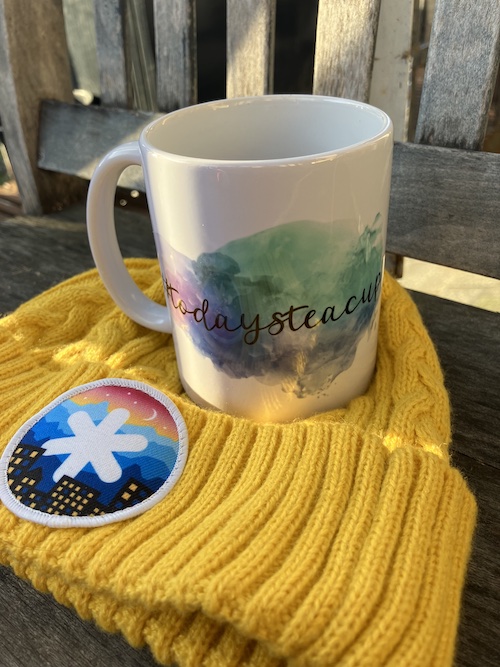
It’s just ten days before the Coldest Night of the Year event where I’ll be walking in support of my local Fort York Food Bank to help them meet their goal of raising $100,000 in support of the vital services they provide to my neighbours.
(FYFB is a small but mighty food bank in downtown Toronto. They serve over 2,400 clients weekly with grocery hampers, hot takeaway meals on Sundays and a grocery delivery program for 160 seniors every Monday.)
And now the stakes have been raised—when you donate to our campaign, you’ll be entered into a draw to win a most extraordinary, coveted object, the very FIRST Official #TodaysTeacup Teacup, perfect for your own personal tea times to add a bit of ceremony to your life.
Even better, the Official #TodaysTeacup Teacup is not just any old customized mug, oh no, this Official #TodaysTeacup Teacup was designed and created locally by my friend and neighbour, the multi-talented @esquared.designs—and it could be yours if you donate to our #CNOY2023 team today! Once the event is over, I’ll be making a draw and will personally mail this mug to YOU! (Canadian addresses only please.)
Do you want to win?? Donate at our team page and you’re automatically entered into the #todaysteacup giveaway while raising money for good in the process. Win, win! WIN!
February 15, 2023
Gleanings

- Misogyny may have been force-fed to us, but we still ate it up. Realizing later it was making us sick didn’t change that.
- When I’ve gone on solo trips, people have said the same thing to me, “How brave of you.” I have not considered it bravery, merely a curious and adventurous spirit, and, honestly, a bit self-indulgent. Because I can travel, I do.
- Have I mentioned that I do not like anyone touching my feet? This guy, he is going to touch my feet. I wish they could put me under general anesthesia for this but it sounds like no.
- I so believe what Dan Savage said, that a love story has to be written and re-written, over and over again if it is to survive. A couple is not just a commitment in terms of sexual fidelity and household labor, but a commitment to an evolving idea.
- How can I possibly fathom what I’m making of my life, while I’m living it? What a comical task to set for oneself.
- Here’s a way to blog: you take a few things that are currently of interest to you, and then you start to ramble and see if they make sense together. Sometimes they really do! Sometimes it’s kind of a stretch….
- Kindness is a choice, a decision. It’s a conscious intention towards thoughtfulness, amiability and goodwill. I was ready to give up on ever having a map of the creeks, but then a sweet moment of grace happened, the kind that caused gratitude to explode in my chest, and just like that, my world was – is – wonderfully rosy.
- I can have my spreadsheets and my 5-point book marketing strategy. I can do all that. But then I can also go out for a very quick ski and end up injured, off work and unable to type or do basic tasks for multiple weeks. Who knows how it will all go? NOT ME.
February 14, 2023
Swimming in Pee

We had the kind of weekend this weekend that hasn’t been possible in such a long time, the kind of weekend that we were wondering if we’d ever have again, even just a year ago, and it felt really good, to be so full of joy, our time full of fun, everything carefree. And something I can write on my blog that I would be less comfortable posting to social media, which is so much more amplified and devoid of context, is that we thoroughly forgot about Covid this weekend. 24 hours in Niagara Falls, staying in a hotel, visiting an indoor water park, and eating in restaurants—the object was enjoying ourselves and beyond packing hand sanitizer, we were going to not worry so much, leave our masks in our pocket for once.
Which I know is something we’re very lucky to be able to experience, but anyone who reads here often also knows what a terrible time I’ve had with anxiety over the last few years and how Covid absolutely fucked with my brain, made me think that keeping our health system functioning was my personal responsibility, and that every single one of my actions was so gravely consequential that I eventually was unable to do anything except walk around weeping at the sadness of it all, crumbling under the weight of this imagined burden of personal responsibility and my own catastrophic thinking. It was really bad, and terribly debilitating, and also really freaking hard for my family, and no doubt my kids will be talking about this in therapy for decades to come.
(I really really hate the way that bad actors hijacked the conversation around the pandemic and mental health right out of the gate so that it became impossible to have good faith conversations about any of this, to acknowledge that Covid is real and threatening, but also that there are dire consequences of having an entire society living under a perpetual emergency for literally years.)
And so it was actually really important, and even healthy, to have this little holiday away from it all, a bit like tearing off a band aid, pushing myself out of a strange uncomfortable comfort zone. If we got sick this weekend, we reasoned, so be it. Which is the kind of gamble that’s always been necessary for a trip to an indoor water park anyway, right? We were pretending that there was no circulating respiratory viruses, just as we were pretending that the wave pool wasn’t populated by people (hopefully mostly just the small ones, which is somehow less disgusting!) who were freely urinating without compunction.
So naturally, my youngest child woke up this morning puking—an inevitable water park aftermath. (She has been well since mid-morning, however, and will likely be returning to school tomorrow.) And then I headed to the hospital for my annual thyroid check, where it was found that one of my nodules had grown larger and so I had to have a biopsy (which I have had fairly often, and they’ve always been benign, thankfully), cystic liquid being sucked out through a needle in my neck.
And in the lab where I was sent for routine bloodwork, the technician was dressed in red for Valentines Day, just like I was, and we remarked on how we matched my blood, which filled four small vials for testing, and it somehow seemed fitting on Valentines Day, it being about hearts and all, my heart and your heart doing the amazing work of keeping our remarkable blood pumping through our gross and awesome bodies, and how all of us are connected, for better or for worse, most irrevocably.
I took the subway to the hospital for my appointment this morning, the first time I can recall riding transit at rush hour in such a long time, and the subway cars were packed, and more people than not with masks on, including me, and far more people with masks on than I ever see at off-peak hours (which makes a lot of sense!), and the subway was also so audibly quiet, people possibly on alert and good behaviour due to recent acts of violence on transit, and maybe that calm and quiet was what made it a little extra easy to feel in love with everybody today. All these people who’d woken up and had their breakfast and gotten dressed, and maybe nursed sick kids, or walked their dogs, or watched the sunrise with a cup of coffee, and now they’re out in the world, surrounded by strangers, following the rules, going through the motions, minding the gap.
It isn’t necessarily how badly our society functions that is remarkable, all of its faults and flaws, as I’ve written many times before, but instead that it functions at all. That most days in this city hundreds of trains take people places, and those people make room for each other, and move over on the stairs to let others pass, and help somebody up who has stumbled and fallen. That lab techs who dress up in red to make someone’s day a little brighter, going to work to poke needles, drawing blood, performing work that just might mean the difference between life or death. The miracle of socialized medicine and that I get the care I need to stay healthy. The miracle of ultrasound. The mask I continue to wear, when it makes sense, in my day-to-day life, and the knowledge that all of us, always, are swimming in pee.
And somehow, this is love.
This is life.
Happy Valentines Day.
